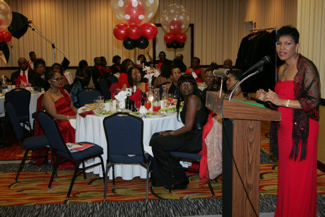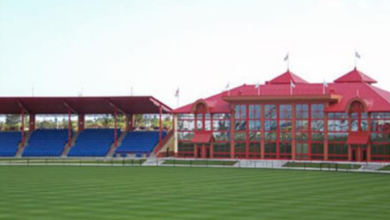Jamaica’s Ambassador challenges members of the Diaspora to support the island’s developmental objectives
Derrick A. Scott
NEW YORK – Jamaica’s Ambassador to the United States, Her Excellency Audrey Marks, has called on alumni associations overseas to forge a structured, collaborative effort, to harness the tremendous reservoir of resources, expertise and experiences, that abound within the Jamaican Diaspora.
Ambassador Marks made her comments as she addressed the Marymount High School Alumni Association fund raising ball on Saturday night at the Double Three Hotel in Queens, New York.
“While we can make an impact as individual associations, we can have a far greater national impact if we work with other Alumni Associations to forge a structured, collaborative effort to harness the tremendous reservoir of resources, expertise and experiences, that abound within the Jamaican Diaspora,” she said.
The Jamaican Ambassador pointed to the field of education, training and social issues as areas which “coincides with the government’s own programme for national development and embraces the critical pillars of development of any nation.”

Jamaica’s Ambassador to the United States Her Excellency Audrey P. Marks delivering the keynote address at the Marymount High School Alumni Association’s inaugural dinner held at the Double Tree Hotel in Queens, New York. (Derrick Scott photo)
“There is an urgent need for structured support at every level of the education system. Recently the minister of education declared his intention to make Early Childhood Education a national priority within the renewed social agenda.
The importance of giving our children a good start cannot be overstated. We all know that the years between birth and the early childhood education cycle are the most critical period in the development of the child, since emotional control, intelligence, personality, social behavior, skills and vocabulary are largely established before the child goes to primary school,” Ambassador Marks declared.
The Jamaican envoy pointed to the performance data, which shows that the country’s investment in education “is just not bringing in the returns we would like to see.”
“Quality education in today’s world is not cheap and is impossible to deliver without quality-trained teachers and the application of modern technology. In Jamaica today, the access of our students at every level is higher than most countries. Our success rate is lower than most. In the critical subjects of math, English and computer technology, our success rate is too low. Too many of our students leave high schools without certification,” Marks pointed out.
She pointed to a recent survey, which showed that from “a population of under 3 million, some 154,000 persons are unemployed. In addition, there are some 467,000 young people between the ages of 14 and 29, who are not employed and are neither in a training institution nor looking for work. This group has little or no certification and commits 75 per cent of the homicides, and also accounts for 75 per cent of the victims.
This is a time bomb that is ticking. We just cannot afford to have any increase in these numbers. Everything depends on the quality of our efforts before our children enter high school,” Ambassador Marks declared.
She welcomed the recent initiative by Education Minister Ronnie Thwaites in reintroducing the teaching of civics and the works of National Hero Marcus Garvey as “an integral part of the school curriculum in order to give our students a better understanding of both governance and a sense of national identity, rights and responsibilities.”
Ambassador Marks noted that Jamaicans in the Diaspora “must find a way to support these important initiatives by giving every assistance we can in providing technological support for the preparation and production of the teaching materials.
We know that the contribution of some $2 billion annually by the Diaspora makes a critical difference to family budgets in Jamaica. However I am convinced that we can do much more by way of impact, one major project at a time through a nationally coordinated approach in some of the projects in which you and all the alumni organizations are presently engaged.”
The Jamaican Ambassador challenged the Alumni Associations to combine their skills and talents in a major project in support of Jamaica’s national developmental objectives.


